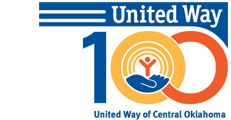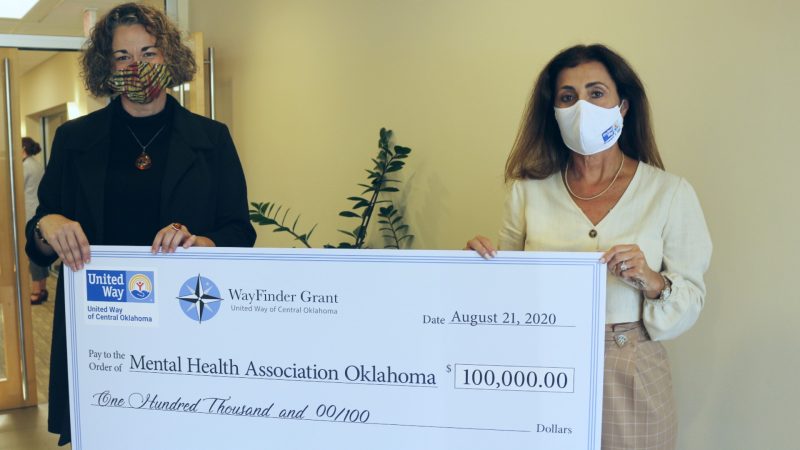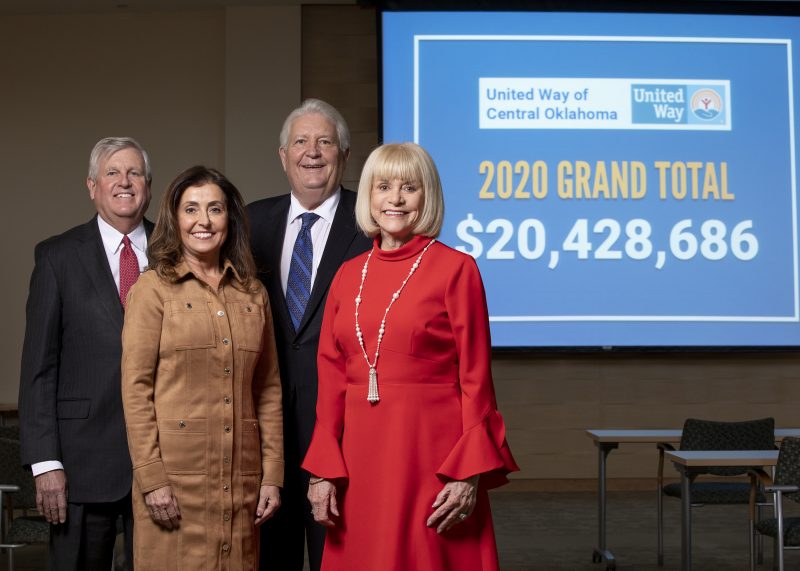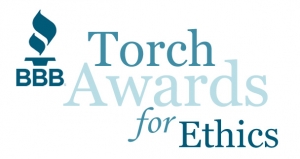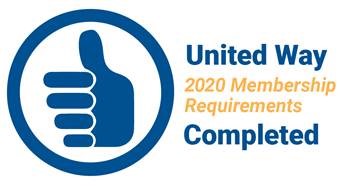United Way to Dedicate $1.2m in Mental Health, Substance Abuse Areas
Oklahoma ranks among the worst states for the number of citizens suffering from mental health and substance abuse problems — especially among its homeless population.
United Way of Central Oklahoma announced Thursday that it will dedicate $1.2 million to help implement a program to make a substantial impact in the area of mental health and substance abuse in central Oklahoma.
“This funding will help our excellent agencies provide a new kind of support to our most vulnerable population,” said Debby Hampton, CEO of United Way of Central Oklahoma. “Recognizing the serious mental illness and substance abuse problems of central Oklahomans, the United Way Board of Directors decided to dedicate these funds to address this pressing community need.”
Because of the support from donors to United Way campaigns throughout the years, United Way of Central Oklahoma is able to provide these funds to programs that support the health and welfare of central Oklahomans. The fundraising campaign continues, however, and United Way of Central Oklahoma strives to continue raising funds toward this end.
With nearly 23 percent of adults suffering from some type of mental illness, Oklahoma has the 2nd highest prevalence of mental illness in the country, according to Mental Health America’s 2015 study, “Parity or Disparity: The State of Mental Health in America.” The report states that of the estimated 609,000 Oklahoma adults with a mental illness, only 42.5 percent received treatment almost 20 percent reported unmet needs.
Pathways to success
The funds will support a collaboration between Mental Health Association Oklahoma and The Homeless Alliance, among other United Way agencies that will help implement Pathways, a specialty case management system for people that face tough barriers in sustaining housing such as serious mental illness and addiction problems.
The program is a piece in the puzzle of getting homeless people into housing while providing them with the supportive services to help them sustain their independence.
The Pathways Case Management system is an evidence-based practice that’s been in practice by health and human service agencies for many years, said Michael Brose, executive director of Mental Health Association Oklahoma.
“It really relates to Maslow’s hierarchy of needs,” Brose said. “If a person finds safety and security in basic needs such as housing and food, they can then focus on other important aspects of life. They may then decide to find a job or a volunteer opportunity, seek care for a health condition, find a faith-based community and develop a circle of friends.”
A business case and a moral case
“A grant like this one from United Way really has an impact on what we would call cost avoidance,” said Dan Straughan, executive director of The Homeless Alliance. “People with severe and persistent mental illness and addiction disorders, those are the people we see in county jail, in the emergency rooms, in our crisis center beds.”
Previous to this grant, the Pathways case management strategy has only been implemented by one group in central Oklahoma, though Mental Health Association Oklahoma’s Tulsa agency has trained case managers who use the approach.
“One of the system’s hallmarks is the strong and enduring relationship developed between the Pathways case manager and the homeless individual,” Brose said.
The case manager meets the homeless person wherever they may be, he said, whether it is on the streets, in a shelter, under a bridge. That case manager then develops a relationship with the individual, identifying their needs and the goals they are willing and hopeful to develop in the short and long term.
The Homeless Alliance and Mental Health Association have also applied for a $16 million grant through the National Disaster Resiliency Competition which, if received, will be used to provide up to 180 housing units for central Oklahoma’s homeless. The grant is through HUD and only states and localities that have experienced a federally declared disaster in the last several years are eligible, Staughan said.
This is a second piece to the puzzle of solving homelessness in the community, he said.
“If you just put people with high barriers into housing, you’re just delaying the inevitable by 30 days or 60 days,” Straughan said. “This grant provides those supportive services without which the housing is meaningless.”
Straughan and Brose hope the United Way Community Impact grant will be a compelling factor in securing the $16 million HUD housing grant by illustrating that the supportive services are already in place to make providing housing to the homeless more successful.
Brose said Mental Health Association Oklahoma is replete with success stories from that program, through which many vulnerable homeless people have found security and built new lives for themselves. It is a tried-and-true model that’s been used with people of varied ages, backgrounds, needs and barriers.
The $1.2 million United Way grant will be dispersed to the program over a three-year period, at $400,000 per year.
“What United Way is doing is spending $400,000 a year that will save Oklahoma City literally millions of dollars per year in avoided costs,” Straughan said. “Not only does it make fantastic business sense, it’s the compassionate way to address mental illness, addiction and homelessness.”
For information, or to donate to United Way of Central Oklahoma’s 2015 Campaign contact United Way of Central Oklahoma online at www.unitedwayokc.org or call (405) 236-8441.
